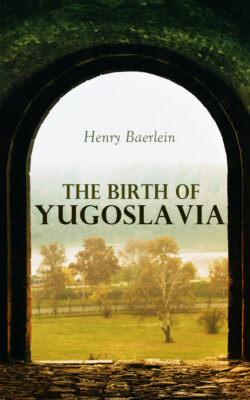Читать книгу The Birth of Yugoslavia - Henry Baerlein - Страница 72
На сайте Литреса книга снята с продажи.
HOW MONTENEGRO REFORMED HERSELF
ОглавлениеThere was a poet on the throne of Montenegro, the greatest of Yugoslav poets, who now that the civil governor (to whom had been entrusted certain duties which it had been thought a bishop should not exercise)—now that this official was expelled, reigned over Montenegro as the first and last real Prince-Bishop. He was a magnificent person, even for a Montenegrin, since his height was no less than 6 feet 8 inches; and in his determination to establish order in the principality he had let nothing intervene. As Russia, after a longish interval, resumed her subsidies and paid Peter II. an annual allowance of nine thousand ducats, together with arms, ammunition and wheat, the Prince-Bishop was relieved of the necessity of taxing his people. This made it easier for him to build up a strong central power that would not be dependent on the tribal chiefs, though it is doubtful if a despotism was more suitable for Montenegro's economic circumstances than the patriarchal form of government. Peter surrounded himself with a senate of twelve members, whose salaries he paid, a bodyguard of a few dozen and a police force of several hundred. These men, who lived to execute his wishes, were the instruments by which he set about improving Montenegro. The vendetta was to give way to the law court; there was something to be said, though, for the people who withstood this innovation, since the court's decision was the will of Peter. But no arguments protected anyone who clung to the old-fashioned ways of the vendetta or of brigandage or theft from being placed before a file of the Prince-Bishop's men. Tales are still recited in the primitive, bleak homes of Montenegro touching the great number of his subjects whom the poet put to death. But that was not the only penalty, for of the two European institutions with which he had embellished his capital one was a prison. The other was a printing-press, in which he had a childish joy. Once when he was entertaining King Augustus of Saxony he composed a poem for him while they were at supper; it was printed in the night; the happy author, next morning, not a little proud of this achievement, gave a copy to the King. He issued an official paper from this printing-press; its name was Grlica, which means "The Turtle-Dove."
